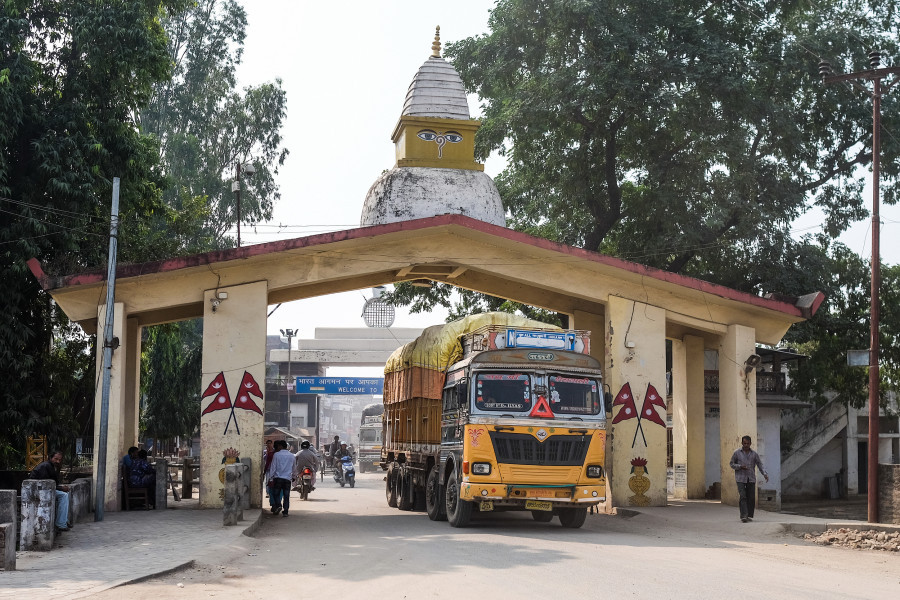Columns
Shortages and good neighbourliness
India’s food inflation rose to 11.5 percent in July due to increasing commodity prices.
Smruti S Pattanaik
As the price of tomatoes surged in the Indian market touching nearly Rs300 per kg in some cities, India made a request to purchase tomatoes from Nepal to deal with the surging prices. Such requests for essential items from neighbouring countries during a shortage are not new on the subcontinent. However, such a rise in the price of essential commodities has serious political ramifications, and the elected governments in the region understand that.
In 1998, for example, the price of onion in Delhi cost the Congress government dearly in the assembly election. One has seen in the past how the rise in the price of essential commodities has become a major political issue. While Nepal’s request to provide greater market access also draws attention to the state of cross-border trade in perishable goods, its request to India to lift the ban on the export of non-basmati rice and sugar as the festival season is going to start shortly also reflects the concern regarding the rise in prices of essential commodities and its political impact.
Impact of restrictions
In all these cases, the domestic market dictates the flow of these essential goods, and at times this has been able to address discontent as food inflation adds to anger among the people. In 2020, India’s decision to stop the export of onion to Bangladesh without adequate notice drew the ire of Bangladesh. Addressing a bilateral business summit, Prime Minister Sheikh Hasina said India could have given advance notice to enable Bangladesh to source onions from other countries. In 2019, a similar Indian action forced Bangladesh to import onions from Pakistan, Turkey, Egypt, China and Myanmar.
In fact, during Sheikh Hasina’s visit to India last year, the joint communiqué mentioned that “the Bangladesh side requested the Indian side for predictable supply of essential food commodities from India such as rice, wheat, sugar, onion, ginger and garlic”. India has already agreed to a fixed quota for such products to avoid a repetition of the past. The export of hilsa fish to India is another important dimension of this cross-border interdependency. Any export restriction by Bangladesh often has an impact on India’s domestic market, especially in West Bengal, where the price rises and people resort to smuggling to scuttle the ban.
Pricing of vegetables has become a major concern for governments in the region. Often, steps are taken to protect the interest of farmers so that their produce gets a better price in the market. Sometimes, the government also intervenes to fix the market price to help them. Sometimes, the farmers themselves destroy their vegetables, given the low price in the market. Sometimes import restrictions are placed to help domestic growers.
It has been observed that such a ban and export restriction adds to price volatility in both importing and exporting countries. For example, when the government of India declared that it was going to import tomatoes from Nepal, the price of tomatoes saw a reduction. In the past, India also imported sugar from Pakistan to overcome shortages.
Food price inflation in Pakistan also made the country consider trade with India. Pakistan’s Economic Coordination Council had allowed the import of 500,000 tonnes of white sugar and cotton by the private sector ostensibly keeping in mind ‘the interest of the people’, but it immediately reversed its stand fearing a political backlash. Similar media reports of the import of sugar from Pakistan in 2018 also led to domestic criticism in India, with the opposition accusing the government of ignoring its farmers. India has now withdrawn the most favoured nation status given to Pakistan under the World Trade Organisation. Yet, one has seen an increase in Pakistan’s import of drugs from India after the pandemic.
Imports and exports of essential commodities have been part of domestic politics on the subcontinent. Consumers are price sensitive, and any proposal to export essential items to meet a shortage in a neighbouring country is seen as deprivation to one’s own citizens. Opposition political parties immediately take up the issue to criticise the government. There are instances of people filing public interest litigations to stop the government from exporting and even asking the court to intervene to regulate the price of vegetables.
Spiralling inflation
India's food inflation rose to 11.5 percent in July due to increasing vegetable and essential commodity prices. Meanwhile, Pakistan's consumer price inflation for food items was 39.52 percent, Nepal's was 5.66 percent, and Bangladesh's was 9.73 percent as per Trading Economics data. All the countries have introduced domestic measures like the government providing essential commodities at fair prices to reduce the domestic impact of rising prices of consumable goods. Bangladesh has introduced a Food Security Programme to sell rice and pulses at subsidised prices. In 2023, Pakistan extended a food subsidy programme to ease the inflationary pressure on the common man.
The Russia-Ukraine war saw oil prices escalate which had a cumulative effect on the common people in South Asia. Apart from this, climate change issues have been impacting agricultural production. As a result of this, food prices have spiralled. Governments in South Asia realise that any increase in food prices will impact the poor and vulnerable. Hilsa diplomacy of Bangladesh and mango diplomacy of India, Pakistan and Bangladesh also reflect how our gastronomy has defined diplomacy on the subcontinent and beyond.
Though South Asian states have come to the rescue of each other in times of crisis to meet shortages, sometimes sudden export bans due to domestic considerations defeat the purpose of extending a helping hand. Sometimes, there is an artificial shortage of food items as any proposition to export essential food items to a neighbouring country creates insecurity and fear of shortages. Anticipating a rise in prices, there is a tendency to hoard even among consumers. Yet, such crisis points also bring to the fore how cross-border transport connectivity will facilitate such interdependency in the future to create a win-win situation.




 8.75°C Kathmandu
8.75°C Kathmandu















